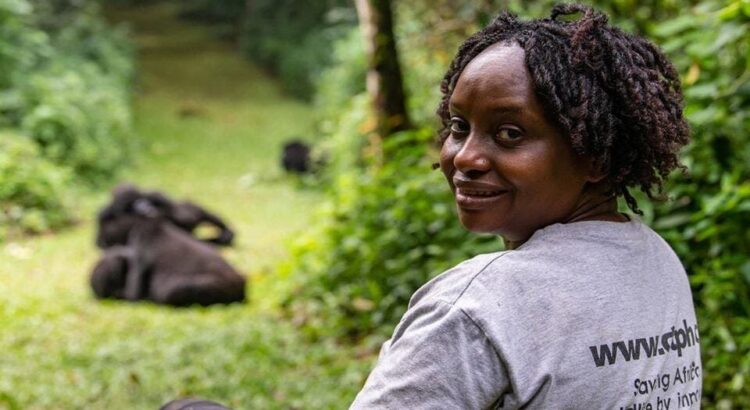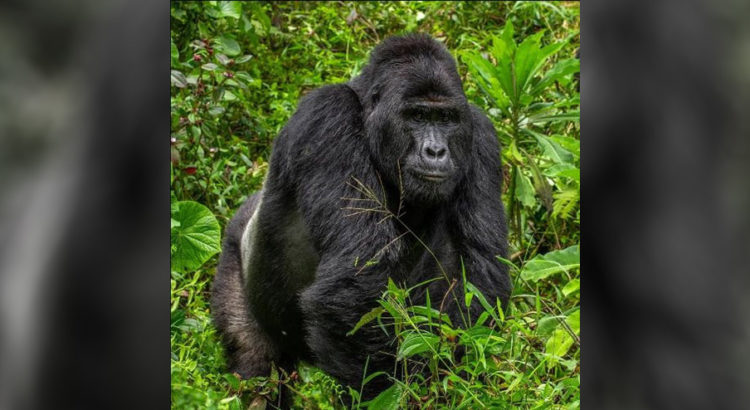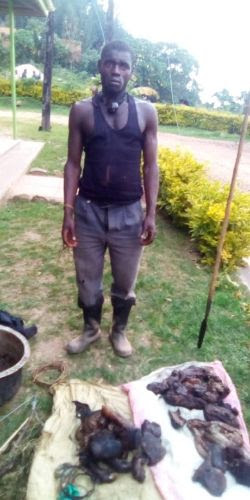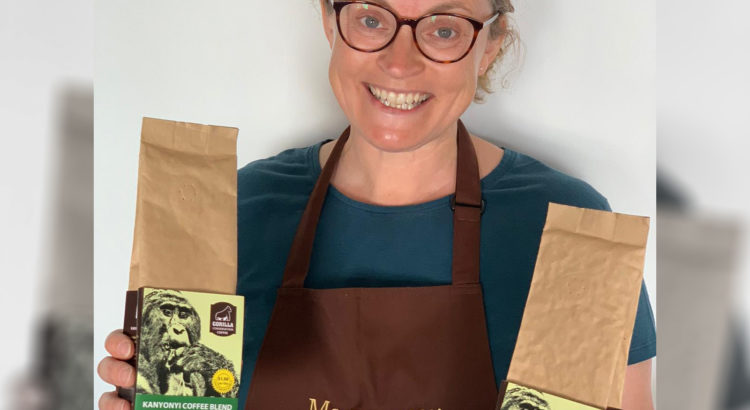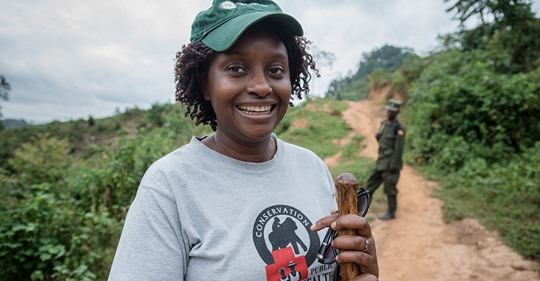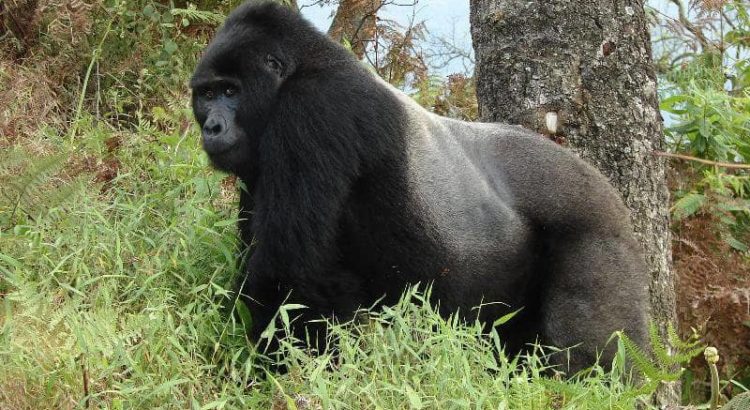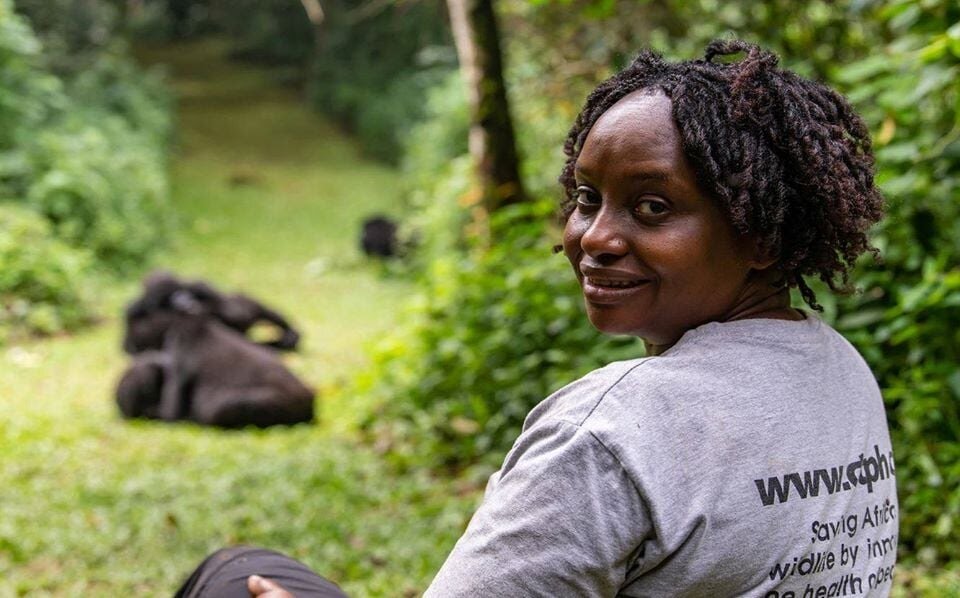
Dr. Gladys Kalema-Zikusoka, a WINGS WorldQuest Fellow, National Geographic Explorer and award-winning researcher, is one of the world’s leading protectors of the critically endangered mountain gorillas. She is the lead veterinarian at Bwindi Impenetrable National Park, a 321-square-kilometer wildlife preserve in southwest Uganda, where roughly half of the world’s remaining population of mountain gorillas live.
As we settle in for our phone interview, Kalema-Zikusoka is having issues with her internet. Calling in from Kampala, the Ugandan capital, right after her BBC interview, she says, “Voice memo. Instead of a live conversation, I had to send a voice memo. I’m glad it’s working now.”
Adaptability seems to be on Dr. Kalema-Zikusoka’s mind more than usual. Her non-profit organization, Conservation Through Public Health (CTPH), which focuses on animal and wildlife preservation public education, has been considering how local communities can adjust to the new normal.
In a normal year, tens of thousands of visitors pour into Bwindi Impenetrable National Park to see the gorillas. But, with all inbound international flights grounded due to COVID-19, the wildlife tourism that sustains the communities around the park all but disappeared overnight. Now, in addition to maintaining overall health of the ecosystem, Dr. Kalema-Zikusoka and CTPH have an added objective of sustaining local livelihoods.
After winning the Sierra Club Earthcare Award in 2018, Kalema-Zikusoka began the process of writing her memoir, due out in 2021. Mining from her thirty years in conservation, she discusses integrated approaches to sustainable development in an increasingly interconnected world. Now, in light of COVID-19, her thoughts don’t just apply to Uganda, but to the world.
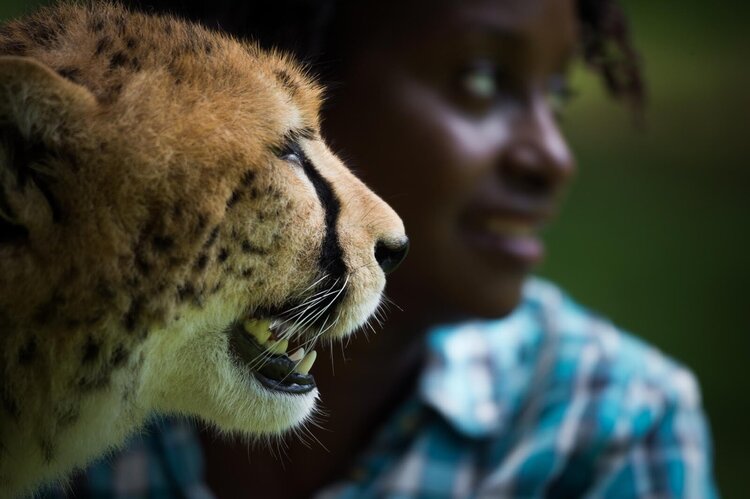
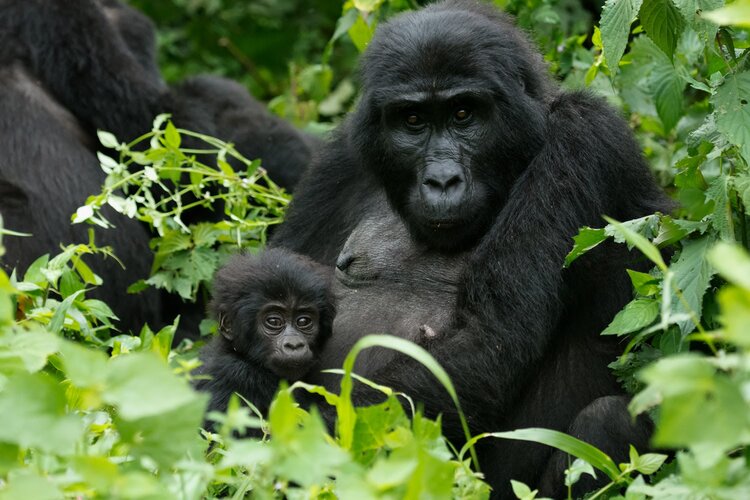
Recognize interconnectedness of nature and society
In 1996, Dr. Kalema-Zikusoka was working as the first-ever veterinary officer for the Uganda Wildlife Authority when scabies infected a mountain gorilla family. Dr. Gladys discovered the cause was clothing and food items in a nearby community — zoonotic transmission, illness transferred between humans and animals. She brought the disease under control by educating communities on proper hygiene and infection prevention.
Deforestation and urban development push humans into spaces once occupied solely by wildlife. With the Bwindi scabies outbreak, the gorillas were infected by venturing into human living quarters that were once their domain. “Gorillas are naturally curious, they will explore the areas that used to be their habitat,” says Dr. Kalema-Zikusoka.
An April 2020 study by Stanford University suggested that deforestation could lead to a rise in zoonotic diseases like COVID-19, which traveled from animals to humans. The risk of zoonotic diseases is high at the fragile point where wildlife, people and livestock intersect.
Recognizing the need for a long-term, community-invested organization to implement these and other measures, Dr. Kalema-Zikusoka founded CTPH in 2003. Similar to the current messaging from the Center for Disease Control, the team recommended frequent handwashing and social distancing. Dr. Kalema-Zikusoka had long-term aspirations including family-planning to improve health and reduce family size, as well as education to alleviate poverty. Every step she took to improve human health, Dr. Kalema-Zikusoka knew, would benefit gorillas as well.
The global economy can put local health at risk
The PPE crisis experienced in the United States was felt around the world. Kalema-Zikusoka recalls being in a virtual meeting with fellow researchers at the Robert Koch Institute in Germany, which experienced the same shortage of N95 and surgical face masks, “It dawned on me then…if Germany doesn’t have masks, then it’s no wonder we’ve run out of masks.”
Thinking quickly on her feet, Kalema-Zikusoka encouraged Ride 4 a Woman , a local non-profit employing textile workers in the community, to pivot from making artisanal tablecloths to double-layer cotton masks, which are now protecting government workers, CTPH researchers, and therefore the gorillas.
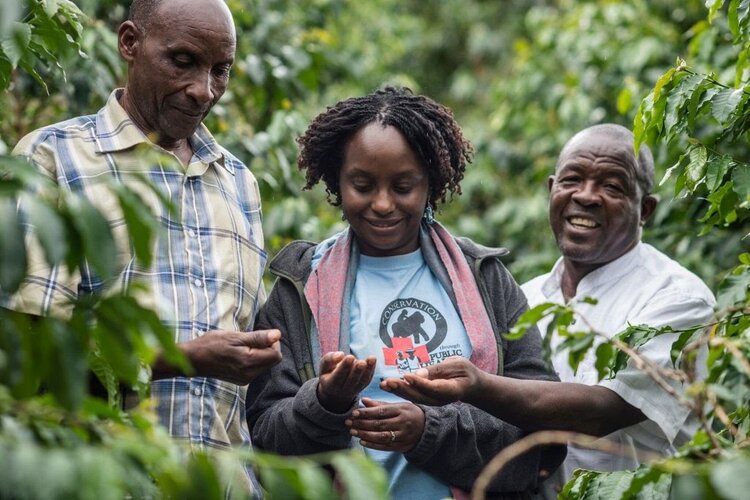
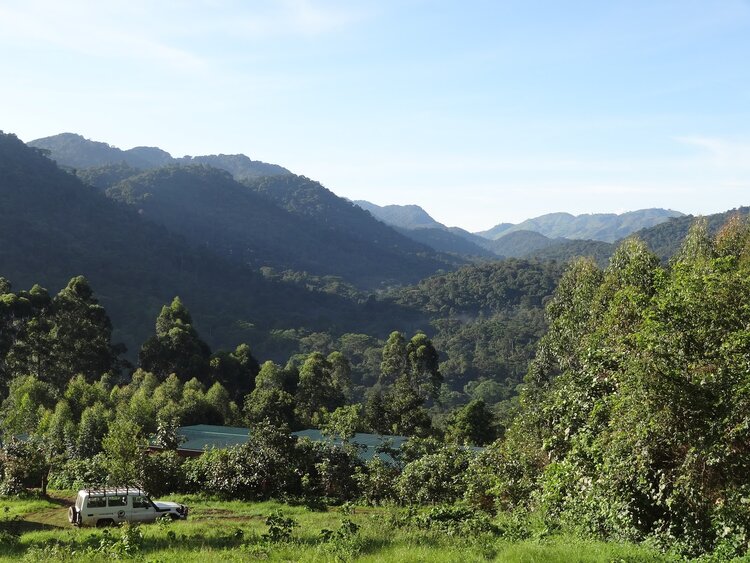
Return to self-sufficiency
In the early 1990s, when the park was opened up for tourism, the residents near Bwindi abandoned their physically taxing agricultural efforts to pursue the strong foreign currencies from tourists. But during government-mandated shelter-in-place, these Ugandan workers suddenly found themselves jobless, and without stimulus checks or unemployment insurance.
Since the pandemic, Kalema-Zikusoka’s team has encouraged the community to return to coffee, tea and sustenance crop farming. This crisis has forced us to consider the necessity of food, shelter and water, and how we can provide for ourselves.
Look out for each other
Dr. Kalema-Zikusoka sees a change for the better among the tourists inquiring about upcoming tours at Bwindi. Previously, trekkers wanted to be as close as possible to the mountain gorillas, but now they are expressing concern about not getting animals sick, maintaining distance, and insisting that other guests wear masks.
Dr. Kalema-Zikusoka sees how people are supporting each other locally and globally, something CPTH has been doing for years. CPTH organized a group of local farmers to grow and harvest coffee, which is now being sold in the United Kingdom and United States as Gorilla Conservation Coffee. “Now people who may not be able to travel to us can still support the gorillas,” she says.
The impact of COVID-19 propelled us to be a bit more cautious and more considerate of our neighbors, both human and animal, and increased our sense of responsibility for others. Making decisions that take into account how interconnected we are will be critical for global health moving forward.
